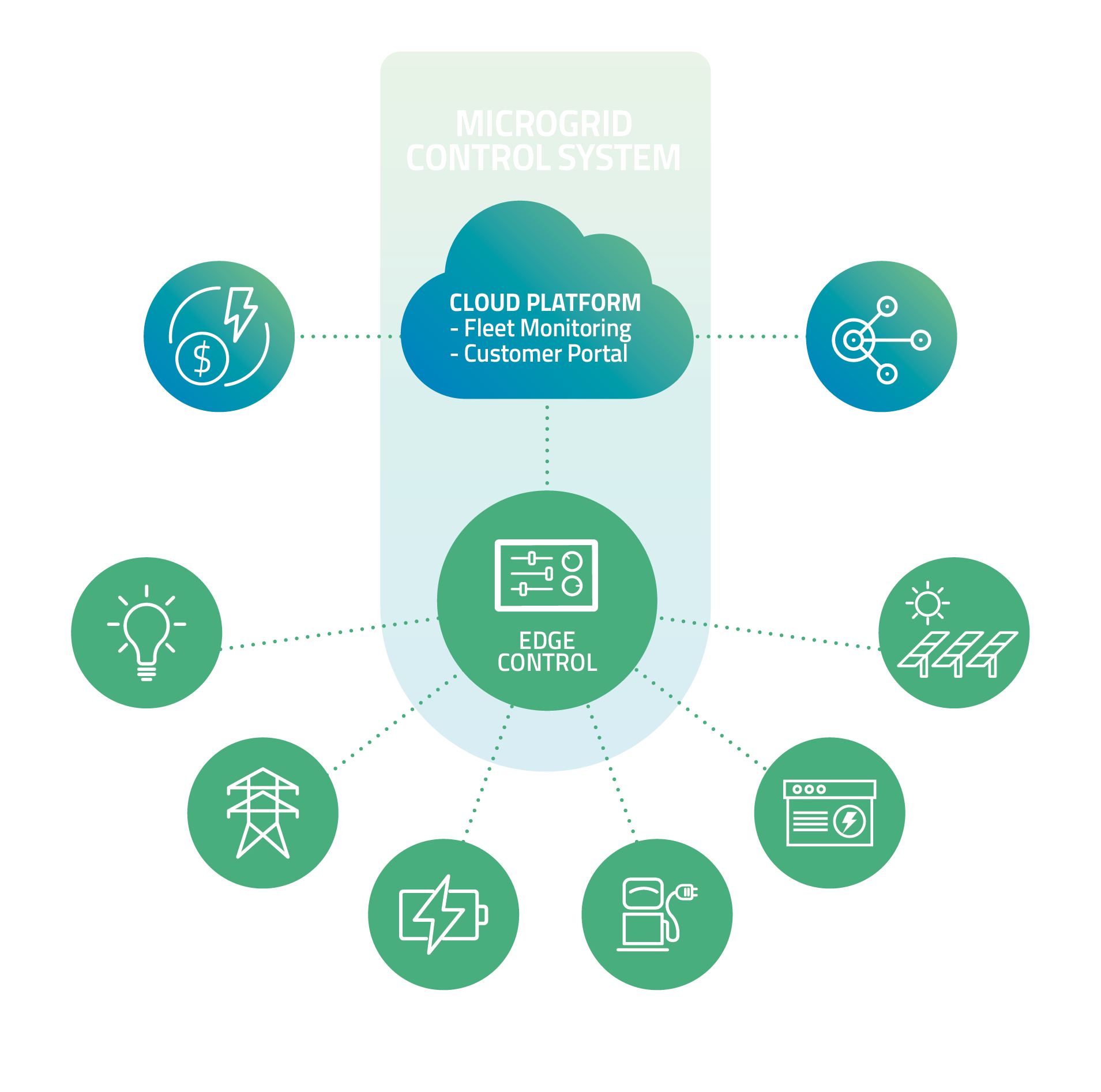
MICROGRID CONTROL SYSTEMS

What is a Microgrid?
A microgrid is a group of interconnected loads and Distributed Energy Resources (DERs) that acts as a single controllable entity. The purpose of a microgrid is to deliver one or more energy services, also known as a value stacking. Microgrids have 3 defining characteristics:
LOCAL
A microgrid serves a discrete geographic footprint, such as a college campus, hospital complex, business center or neighborhood.
INTELLIGENT
A Microgrid Control System orchestrates multiple DERs to meet the energy goals of its customers: lower costs, cleaner energy or reliable power.
INDEPENDENT
A microgrid can disconnect from the grid and operate independently. This islanding capability allows it to supply power to customers when the grid experiences an outage.

What Is A Microgrid Control System?
A microgrid control system orchestrates multiple DERs to meet the energy goals of its customers.
The foundation of a microgrid control system is the secure communications network which connects DERs, meters, controllers and the cloud platform. A microgrid control system also includes:
Power automation and switchgear to manage the distribution of electricity
Cloud portal for remote access for customers, partners and operators
Cloud APIs to access energy markets, VPP, DERMS, billing and fleet management applications
Metering on all DERs and circuits so that the system can monitor status
Controllers to run algorithms that determine the operating states of the DERs and other equipment
Gateways to securely connect the DERs, equipment & cloud platform
Watch this video to see a microgrid control system in action:
Key Capabilities of a Microgrid Control System
Managing the value stack of energy services in a microgrid is complex and requires a more advanced control system as you add more services to the value stack, each with competing objectives and constraints.
Poor management can result in penalties, added energy costs and lost revenue opportunities that can wipe out all the benefits and business case of the microgrid itself.
These are the key capabilities of a microgrid control system:
CONTROL
The system should be able to provide some or all of these operating modes:
Islanding
Export to energy & ancillary markets
Maximize self-consumption
Participate in demand response programs
Manage EV charging
Export limiting
Volt/Var compensation
MONITORING
The system should be able to monitor & alarm on the status of:
Solar inverters & trackers
Battery Energy Storage Systems (BESS)
EV Chargers
Generators
All electrical distribution assets (transformers, breakers, UPSs, etc.)
Communications network health
All loads (motors, lighting, HVAC, servers, etc.)
Weather, price & other external variables
Computed KPIs & operating modes related to the above
ANALYSIS & REPORTING
The system should be able to report & analyze:
Power quality
Import & export trends
Billing, including PPA billing, bill verification, cost allocation and tenant billing
Actual vs. contract vs. predicted performance
Compliance with regulations, standards & corporate policies
ROI tracking
Asset & network health
Managing microgrids over the lifecycle
From project definition, design and deployment to operating and maintaining your microgrid, lifecycle services will ensure you get the most from your investment.
PROJECT SERVICES
Secure IoT Network Design
Control Scheme Design
DER and Electrical Device Integrations
API Integrations
Site Startup & Commissioning
SUPPORT SERVICES
Priority Support
On-Call Support
Microgrid Fleet Management
PROFESSIONAL SERVICES
OT Cybersecurity
Site Operation Analysis
Executive Reporting
Power Quality Studies
System Enhancements
Training

Solutions
EnergyX® Cloud Platform
-
Use Dashboards, Live Diagrams, & Trends to track microgrid performance.
Alarm management features include: alarm flood control, prioritizing, grouping, filtering and drill down.
-
EnergyX provides an extensive set of analytics and reporting including: load loss detection, disturbance direction detection, alarm correlation by timeline, breaker and transformer health, billing, emission compliance and more.
-
Integrate any business platform including BMS, SCADA, billing platforms, demand response platforms and energy market bidding platforms.
Connect to external data such as weather, pricing, production units, and occupancy.
-
For customers with multiple microgrids across a region or around the world, EnergyX brings them together into a single platform.
-
For connecting a site to EnergyX cloud, allowing secure bi-directional communications
-
For measuring electrical parameters from DERs and across the distribution network. Can also measure water, air, gas and steam.
-
For intelligent control of DERs, capable of operating in cloud-connected or disconnected mode.
EnergyX® Edge Kits
-
AZZO works with you to asses, define, design, engineer, procure and commission your microgrid control system.
-
We’ll ensure you get the most from your microgrid over the long term with services to expand, enhance and extend your microgrid control system.
-
With a support contract from AZZO, you are assured that your microgrid control system will always be operating as specified.






























